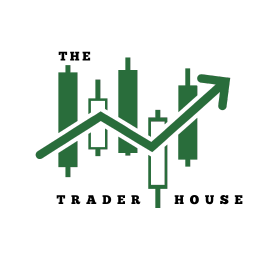
Higher Tariffs: A Tough Road for Working-Class
Higher tariffs can hit working-class families hard, especially when it comes to the costs of the everyday items they rely on. When tariffs increase on goods imported from countries like Canada and Mexico, it can directly impact prices at the store. This is crucial for new traders to understand, as the ripple effect of these changes can also influence the stock market.
To start, you may wonder why tariffs are imposed in the first place. The intention behind raising tariffs is to encourage buying American-made products, which helps protect American jobs. However, this intention can backfire. For families on tight budgets, the increase in prices can lead to some tough choices, especially when shopping for groceries and other essentials.
What to look out for as a Trader
If you’re looking to learn how to think like a trader, keeping an eye on such news is essential. Tariffs can lead to uncertainty in the market, which affects how stocks perform. For example, if consumers start spending less because they are facing higher costs at the register, companies may see their profits shrink. This could lead to fluctuations in stock prices, affecting your trading decisions.
The article from Axios highlights not just the direct costs of higher tariffs but also how they can impact the entire economy. If spending slows down among working-class families, businesses might struggle. As you gain experience in trading, you’ll see that understanding these broader economic trends will help you make better-informed investment decisions.
You might be asking, “How can I keep track of these developments?” A smart trader pays attention to news reports, financial updates, and economic analyses. Resources like Axios can provide timely insights. Plus, staying updated on how tariffs affect different industries can help you identify potential investment opportunities or risks.
It’s worth noting that while some companies may benefit from higher tariffs due to increased domestic production, others could suffer due to rising costs. This generally causes a mixed bag of reactions in the stock market. For instance, industries reliant on imports may find themselves in a tight spot, and their stocks could decline.
As you think about the implications of tariffs for your trading journey, remember that the economy is interconnected. Higher everyday costs can lead to lower consumer confidence. When people feel uncertain about their financial future, they may scale back on spending, which impacts businesses and can eventually lead to lower stock prices.
Diversification is key
As you continue learning, try to follow how various companies are responding to these tariff changes. Are they passing costs along to customers? Are they finding new suppliers? Observing how different strategies affect companies within the same sector can give you a deeper understanding of market dynamics.
If you’re trying to figure out which sectors might be more resilient in the face of higher tariffs, consider those that focus on domestic production. Companies that can pivot to local suppliers might see less of an impact from tariffs compared to those reliant on imports. This kind of thinking separates successful traders from those who aren’t as informed.
If you’re eager to dive deeper into the trading world and learn how to navigate these complexities, consider joining our trading course. Our program is designed to help you shortcut your learning curve and achieve quick results in the ever-evolving market landscape. Click the link to start learning now!
As you digest this information, I encourage you to subscribe to our email list and follow us on social media for daily updates and insights. Connect with us on Facebook, Instagram, TikTok, Pinterest, and YouTube.
Understanding the impact of higher tariffs on working-class families and everyday costs is key as you learn how to think like a trader. The markets are influenced by countless factors, and being informed about economic policies is essential to staying ahead. Keep tracking the news, remain adaptable, and you’ll be well on your way to successful trading.







